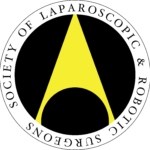Carlos Pellegrini and Brant Oelschlager Surgical Simulation Fellowship
Carlos Pellegrini and Brant Oelschlager Surgical Simulation Fellowship
Location: University of Washington
Program Director: Robert Sweet, MD
The Society of Laparoscopic & Robotic Surgeons has partnered with the University of Washington to promote, screen, and advocate for quality candidates to ensure the rapid spread of minimally invasive surgery worldwide, through a focus on minimally invasive training, care and education.
Simulation for education is spreading rapidly worldwide and it is an excellent means by which surgeons, surgical teams, and hospitals can safely adopt new skills and new. There currently is a lack of leaders who have the ability to establish, maintain, and grow such centers of excellence, particularly in developing and emerging nations. This unique Fellowship provides an opportunity for individuals to develop leadership skills in research, development, administration, curriculum development and delivery.
Fellowship Information
Article I. Eligibility
Faculty from academic institutions are encouraged to apply. Applicants must be an MD and be enrolled or have completed a residency in any surgically-oriented field. International candidates with the intent on developing a simulation center/program in their home country are encouraged to apply; evidence from the candidate’s institution indicating their wish for applicant to lead their SIM program is required.
If a medical license is not obtained, there is an option to be accepted as “SLS Research Fellow” for a one year or two-year period without the opportunity to have direct patient contact. Additional specific documentation for the individual Fellowship Program may be required.
Learn more at: https://wish.washington.edu/simulation-fellowship/.
Article II. Requirements
Applicants are asked to provide the following:
- A current curriculum vitae;
- A personal statement explaining why they are pursing this fellowship;
- A letter of recommendation from their institution (including their interest for the applicant to lead their SIM program);
- A letter of recommendation from a colleague;
- If English is a second language, TOEFL or IELTS exam scores
The Fellow will also work side by side with the Preceptor and other designated members of the Fellowship training team in the office and observe in the operating room. Academic activities such as research, simulation training, publications, presentations and teaching junior staff will be required. Additionally, the fellow will work on curriculum development, research and personal skill building. By the end of this fellowship, they are expected to accomplish the following goals:
CURRICULUM
During the fellowship year the fellow is generally expected to direct forty percent of their efforts toward curriculum development, forty percent toward research, and twenty percent to personal skill building. By the end of the fellowship year they are expected to accomplish the following goals:
In Curriculum Development:
- Develop five full curricula, with one of the curricula focused on team-based care;
- Set up and help teach for all surgical simulation courses;
- Establish a proposal for the development of a simulation center at your institution using the ACS criteria as a model;
- Be an active member of the WISH Grants selection committee.
In Research:
- Publish three papers;
- Design one simulator – click to learn more about the simulation research and development lab at UW – CREST;
- Plan and execute at least one multi-center validity study.
In Personal Skill Building:
- An individual plan will be created and tailored to each individual’s needs.
Article III. Benefits
A stipend will be available for the Fellowship year for candidates. Paid travel and expense to one annual educational meeting or conference will be covered. All benefits will be provided by the individual Fellowship programs. Complete benefits will be discussed with applicants through the individual Fellowship program.
Article IV. Documentation of the Fellowship
Each Fellow will receive a certificate from the Fellowship program director and SLS noting the successful completion of a Simulation Fellowship experience at the successful completion of the Fellowship and its requirements, signed by the Fellowship Director.
For more information or to apply for this position, please contact:
WISH Simulation Fellowship Program Manager
University of Washington
1959 NE Pacific St. Box 356410
Seattle WA, 98195
rssched@uw.edu
Or visit: http://sls.org/sls-fellowship-programs/sls-fellowship-application/
Forms:
